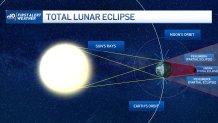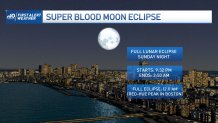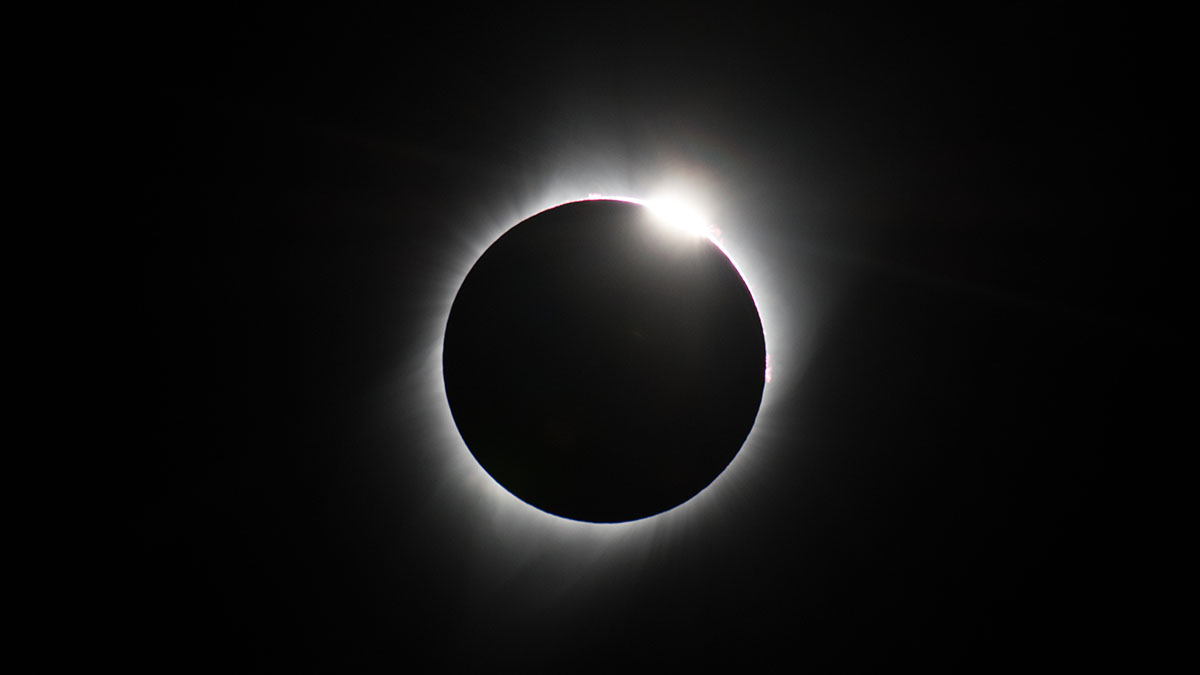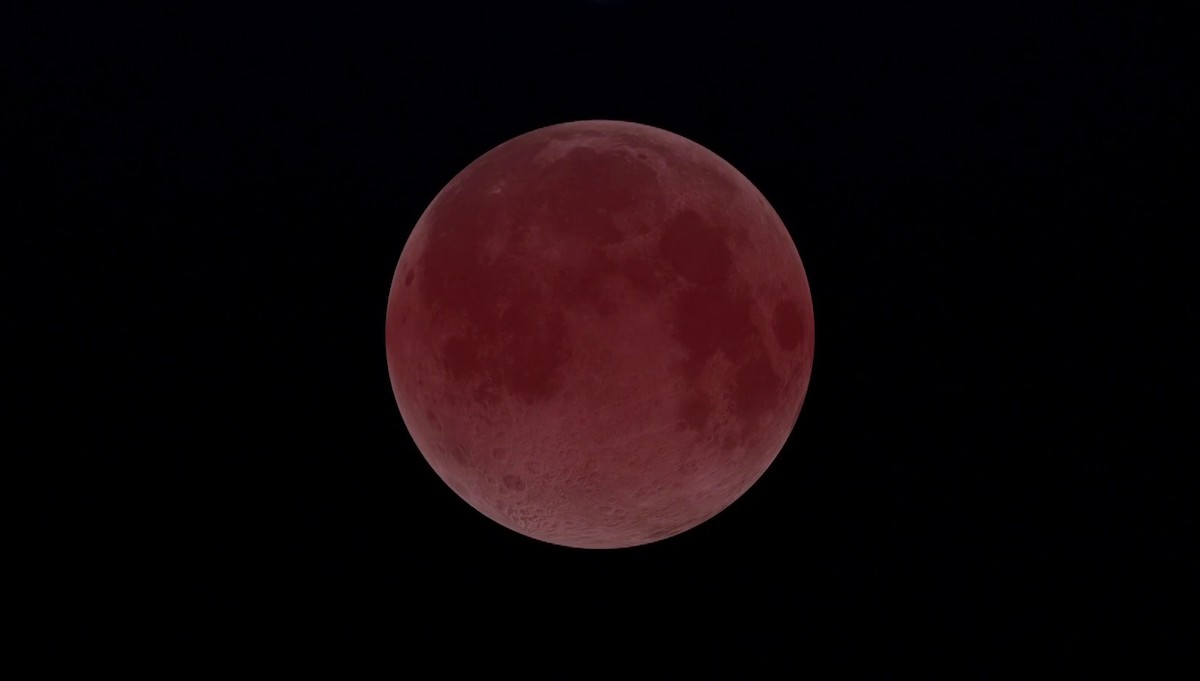We have a big celestial event on Sunday night, so mark your calendar for the super flower blood moon eclipse.
It's a long name, but a few things are happening at the same time to give it this classification. And we're watching the forecast to figure out if the clouds will let us see it.
Will the Lunar Eclipse Be Visible in Mass. and New England?
Get Boston local news, weather forecasts, lifestyle and entertainment stories to your inbox. Sign up for NBC Boston’s newsletters.
The lunar eclipse is when the full moon passes through the shadow of the Earth. That is exactly what is happening Sunday night. This takes a few hours to pass through: five hours and 19 minutes to be exact. So the entire event begins at 9:32 p.m. in Boston and lasts until 2:50 a.m.
Specifically, the partial eclipse begins at 10:27 p.m. (penumbra or partial eclipse), the total eclipse (umbra) begins at 11:29 p.m., and the maximum eclipse is at 12:11 a.m.


New England is keeping its hopes up for a clear, cloudless night to have a front-row view of the super flower blood moon eclipse. Low pressure off to our southwest will crawl in to bring added moisture, clouds and rain chances, but some areas may have a lower chance of showers and a few more breaks in the clouds.
For those counting the minutes for our event, timing will be crucial. We’ll be having a mild night -- lows will drop to the 60s, humidity will be on the rise and we’ll see passing clouds with a 30% chance of showers south, and a 60-80% chance of showers in northern New England. Our showers, however, will be scattered, for which we might see a few breaks to allow a better view south.
Our models keep showing the chance of some heavier rain north of New Hampshire. These cells might bring thunder, and if you’re hearing it on Sunday night, it might be best that you shelter inside. Thunder may strike 10-12 miles away from the center of a storm; besides, you’ll have until 1:56 a.m. to catch a glimpse of the lunar eclipse.
When the partial eclipse begins, scattered showers are projected to enter Vermont, northern New Hampshire and western Maine. We'll see breaking clouds in western Massachusetts and southern New Hampshire.
Since the partial eclipse ends at 1:56 a.m., you can decide if it's worth the wait to have a chance of a better view. And this forecast may still shift a bit -- as we get closer we’ll have a more detailed forecast to better determine the best viewing site.
What Else Is Special About Sunday's Full Moon?
We have the super moon occurring with our full moon Sunday night (officially full at 12:14 a.m. May 16). This means the moon is closer to Earth in its orbit, or the perigee. Although technically, the full moons in June, July and August are closer and more "super."
And the nickname for May's full moon is the "flower moon," a nod to the blooming flowers during springtime. Other names are "hare," "corn planting" and "milk moon."
"Blood" is not usually the nickname for this month's full moon, but the moon will look reddish as the eclipse occurs. This happens as the Earth's atmosphere scatters the blue light from the sun and only red light remains in the shadow, cast onto the moon during the eclipse.
When Are the Next Eclipses?
This lunar eclipse on May 16 is the first of two this year. There will be another on Nov. 8. It will also be a total eclipse, visible across Asia, Australia, the Pacific Ocean and the Americas.
There are also two solar eclipses this year — one partial on April 30, which was visible in the southeastern Pacific Ocean and southern South America. Another partial solar eclipse on Oct. 25 will be visible in some of Europe, northeast Africa, the Middle East and western Asia.
During a solar eclipse, the moon passes between the sun and the Earth. The light is so intense during a solar eclipse that you could permanently damage your eyesight if you look directly into the light. But a lunar eclipse is totally fine to look at directly!
Our forecast for Sunday night is actually warm and humid, with temperatures around 65 degrees at midnight. It will be hazy with the humidity, and we have a few clouds around. A couple of small systems are passing by New England — one south and one north — so stay tuned as we fine-tune the sky forecast for Sunday night.



